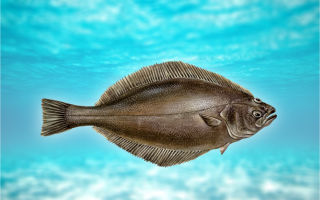Content
Among the varieties of seafood available in stores, halibut, a predatory sea fish from the flounder family, is in particular demand. The benefits and harms of halibut are a question of interest to all seafood lovers and worthy of detailed consideration.
Description
The fish is found mainly in northern waters, caught, including in the Okhotsk, Barents and Bering seas.
This fish does not have a characteristic color - it can be dark, up to black, or light olive. By the way, it is very similar to halibut itself flounderto the family to which it belongs. But it is easy to distinguish them - the eyes of the halibut are located on one side of the head.
The size of an individual depends on the specific species - for example, a large Atlantic fish can reach up to 5 m in length and weigh more than 300 kg. Black halibut is much smaller - usually its weight is about 40 kg, and its length is up to 1.2 m. Asian and American individuals can be considered small - up to a meter in length and weighing up to 90 kg.

How to choose and store the right halibut
Usually in stores there are two types of fish - frozen or fresh. When choosing, you need to be guided by the standard rules for determining freshness.
- Frozen fish must be free of ice on the body. If it is there, it means that the fish was thawed and frozen again at least once - this has a bad effect on quality.
- If we are talking about fresh halibut, his eyes should be shiny and moist, and if they are cloudy, the fish began to deteriorate.
- The body of fresh fish is always elastic, if you press on it with your finger, the dent will quickly straighten. If the body is soft and the scales are covered with a layer of mucus, you should not make a purchase.
- Fresh halibut should smell like sea water. An unpleasant ammonia smell indicates that the fish is spoiled.

Keep fish at home only in the refrigerator. Fresh - it is recommended to cover with crushed ice, but even then it can be stored for no more than a few days. It is important to place frozen fish in the freezer before it begins to thaw. At a temperature of about - 18 C ° the product can be stored for up to 5 months.
Composition and nutritional value of halibut meat
This fish is not very high in calories - 100 g of its meat contains 103-142 calories. The main part of the composition is occupied by proteins - 18.9 g, followed by fats - 3 g, carbohydrates are absent.
The meat is extremely rich in vitamins and minerals. It contains:
- potassium, phosphorus and magnesium;
- selenium;
- calcium, iron, folic acid;
- vitamins B1, B2, B5, B6 and B12;
- vitamin A;
- vitamin D;
- vitamin E;
- vitamin PP - or nicotinic acid;
- Omega-3s are fatty acids.
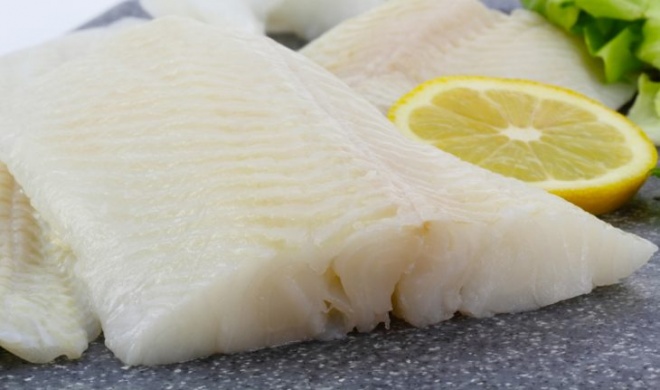
Useful properties of halibut
Regular consumption of halibut helps to maintain well-being and protects against many diseases. Essentially lean, but rich in essential omega-3 fats, meat strengthens the immune system, so eating it more often is especially useful in winter, when it is so easy to catch a cold.
Halibut is mainly appreciated for its:
- accelerates blood circulation, contributes to the fact that oxygen and nutrients are faster carried along with the blood throughout the body;
- strengthens the walls of blood vessels, and this reduces the risk of blood clots, heart attacks and strokes;
- gives strength to human joints.
The beneficial substances contained in it contribute to the removal of harmful toxins, carcinogenic substances and even heavy metals from the body.
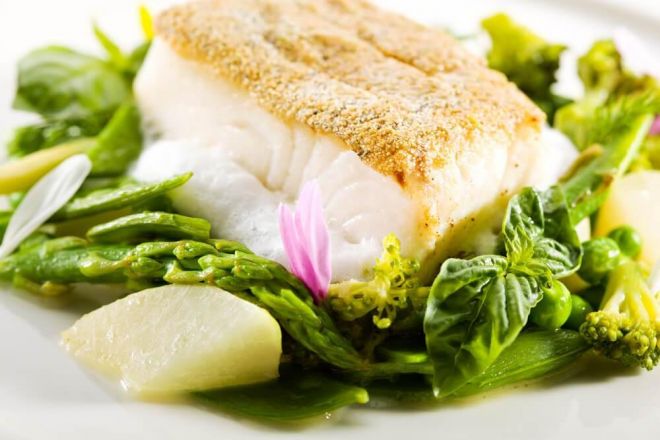
We must not forget about the high protein content in the composition. This organic substance is responsible for the normal level of hemoglobin in the blood, for muscle growth, for hormonal balance, and the ability of the body to heal any injuries, from cuts to fractures, depends on it. Frequent consumption of this fish in food has a good effect on health, and on appearance, and even on mood.
The benefits and harms of halibut caviar
A valuable product is not only halibut meat, but also its caviar, which is sold separately.
- It contains vitamins of group B, vitamins D and PP, it contains nicotinic and ascorbic acids, Omega-3.
- Caviar is an excellent source of iron and potassium, it contains phosphorus and calcium, as well as selenium, iodine and sodium.
- The use of caviar has a positive effect on the functioning of the heart and brain, protects against atherosclerosis and heart attacks, and improves blood quality. It is also useful for immunity.
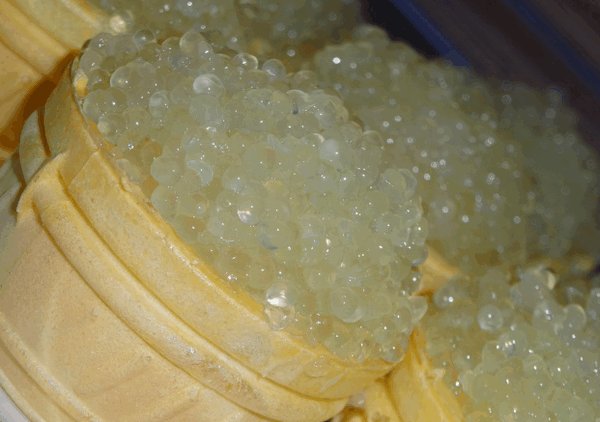
The composition of caviar is in many ways similar to the composition of halibut meat - therefore, products can be alternated with each other, creating variety.
Fish eggs are low-calorie - only 107 calories per 100 g of product. At the same time, the main share is again proteins and fats - 20 g and 3 g. Halibut caviar quickly saturates, raises hemoglobin and has a beneficial effect on muscle growth.
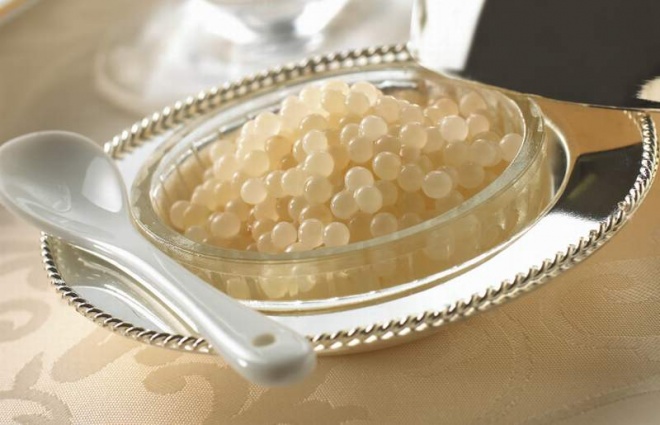
Sometimes halibut caviar can be harmful.
- Contraindication number one is individual allergy to caviar.
- It is better to refuse to consume the product for pregnant women. Due to the high salinity, it can prevent the elimination of fluid from the body, and women in position already suffer from edema. In addition, there is a high risk that an individual allergy will develop in an infant in the womb.
- It is strictly contraindicated for nursing mothers to eat halibut caviar - at least in the first six months after giving birth. The product can cause an allergic reaction not only in the mother, but also in the baby, which is much more dangerous.
- It is better not to add caviar to the diet for people suffering from kidney disease. The reason is the same - a salty product retains fluid in the body, provokes edema and once again overloads the kidneys.
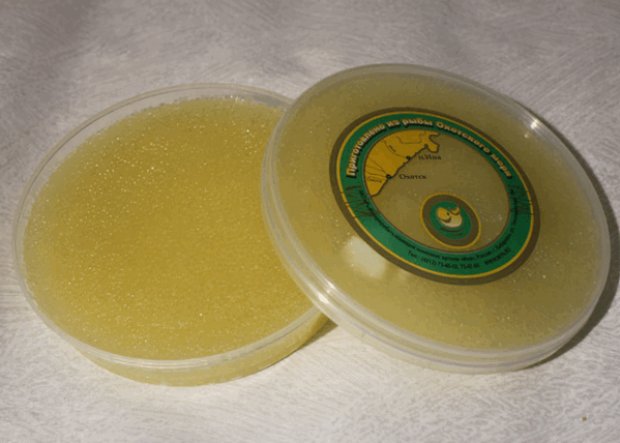
Halibut in cosmetology
Halibut sea fish is used not only in cooking, but also in cosmetology. Its fat is saturated with vitamins and useful acids, therefore, the mention of it can often be found when reading the compositions of creams, cosmetic masks and ointments. In particular, halibut:
- helps to get rid of acne, blackheads, blackheads;
- effectively moisturizes the skin;
- helps with allergic irritations.
Potential harm to halibut and contraindications
Even the most useful product has harmful properties, and halibut is no exception. First of all, it can cause common allergies, but there are other risks as well. For example, the fat in this fish can damage the body with liver disease. Halibut is one of the foods that cause swelling after eating, and sometimes it contributes to the formation of kidney stones.

The product is absolutely contraindicated in several cases:
- with hepatitis and serious kidney disease;
- if you are allergic to seafood;
- with food intolerance of this particular type of fish;
- when breastfeeding.
It is also undesirable to eat halibut during pregnancy, since a child can develop an allergy to fish.
How to cook halibut
Which method of fish processing to choose depends on personal preference. Still, it is recommended to use boiled or baked halibut, since in this case it retains its soft texture, delicate taste and all its useful properties.

Nutritionists do not recommend frying this type of fish, as it loses some of its valuable properties. In addition, when frying, oil is used, and this automatically increases the fat content of the product.
It is not recommended to salt the fish - in this form it is harmful to the kidneys, stomach and heart. Smoked halibut is perceived by nutritionists as neutral - it is better not to try it for the elderly and children, but in general it is safe for health.
Conclusion
Having understood the peculiarities of fish, we can say that the benefits and harms of halibut are determined individually. In the absence of contraindications, it will help to comprehensively strengthen the body, and in case of allergies and certain diseases, it will harm. For the first time, fish should be tried in small portions, and if negative consequences do not happen, add it to your diet from time to time.

